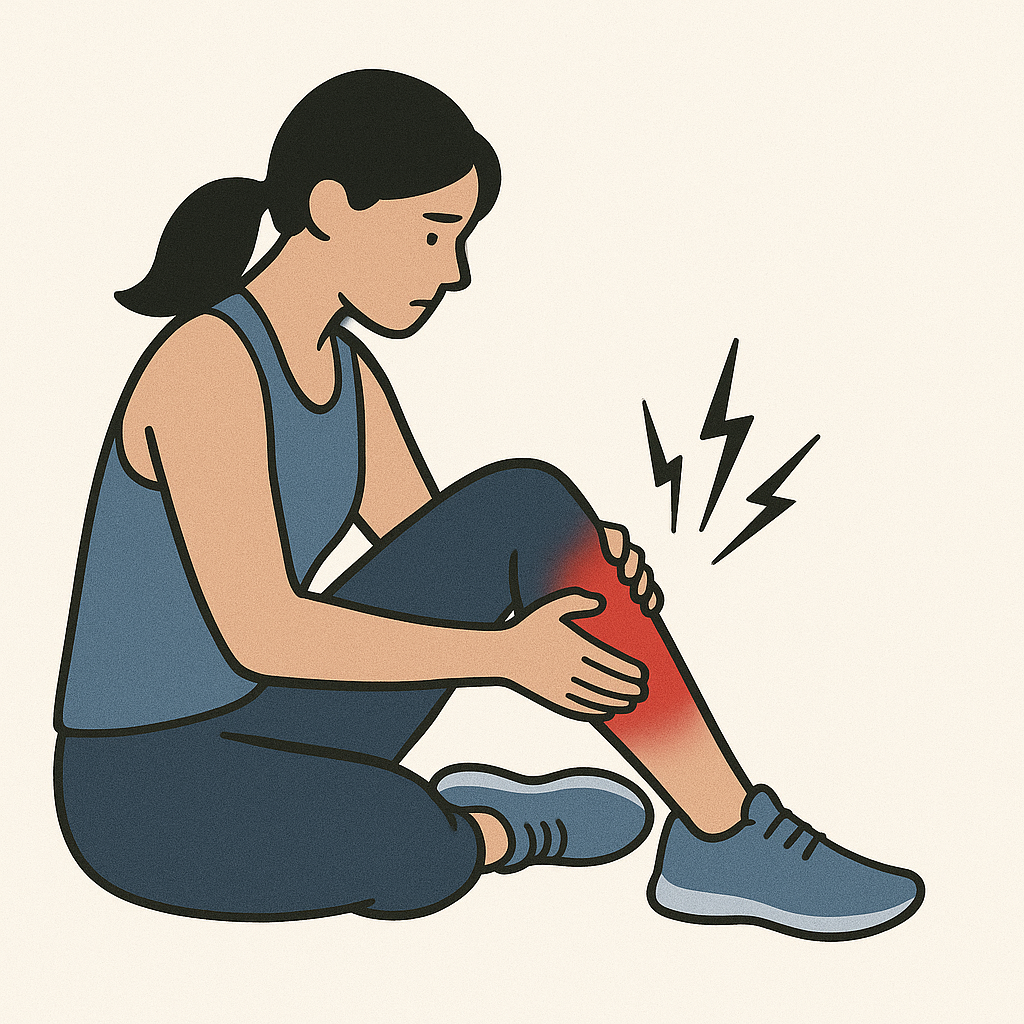
Medial Tibial Stress Syndrome (MTSS)
Medial Tibial Stress Syndrome (MTSS) — commonly known as shin splints — is a frustrating overuse injury that affects countless runners and active individuals. It often starts as a dull ache along the inner shin and can quickly evolve into sharp, persistent pain that interrupts training and daily comfort.
But here’s the good news: with the right combination of exercises, mobility work, and load management, you can significantly improve your pain and reclaim your quality of life.
Why Shin Splints Happen
Shin splints usually stem from multiple contributing factors, including:
- Improper loading or training errors (too much, too soon)
- Poor ankle or foot mobility
- Weakness in lower leg and hip muscles
- Lack of shock absorption control during running
A 2025 randomized controlled study found that runners who combined lower-leg strengthening with a multimodal rehab approach significantly improved both pain levels and quality of life over 12 weeks.
Key Principles for Managing Shin Splints
Load Management – Reduce impact activities early to calm symptoms.
Improve Mobility – Especially ankle dorsiflexion to normalize running mechanics.
Strength Through New Range – Train muscles to control the motion you restore.
Single-Leg & Plyometric Progressions – Build tolerance to impact and return to running safely.
Essential Exercises for Shin Splints Recovery
Calf Raises
Toe Raises
Ankle Mobility Work
Single- leg Standing
Mini Hops
Don’t Skip Strength Training
Strength training isn’t just for performance — it’s one of your best tools to prevent recurrence of shin splints. Building strong, resilient lower limbs means better shock absorption, improved gait control, and pain-free running.
Share the Recovery
If you or your running buddy is dealing with nagging shin pain… don’t ignore it. Early action + smart exercise can be the difference between ongoing pain and powerful performance.
Reference:
Naderi A, Fallah Mohammadi M, Heidaralizadeh A, Moen MH. Effects of Integrating Lower-Leg Exercises Into a Multimodal Therapeutic Approach on Medial Tibial Stress Syndrome Management Among Recreational Runners: A Randomized Controlled Study. Orthop J Sports Med. 2025; 13(2):23259671241311849.







